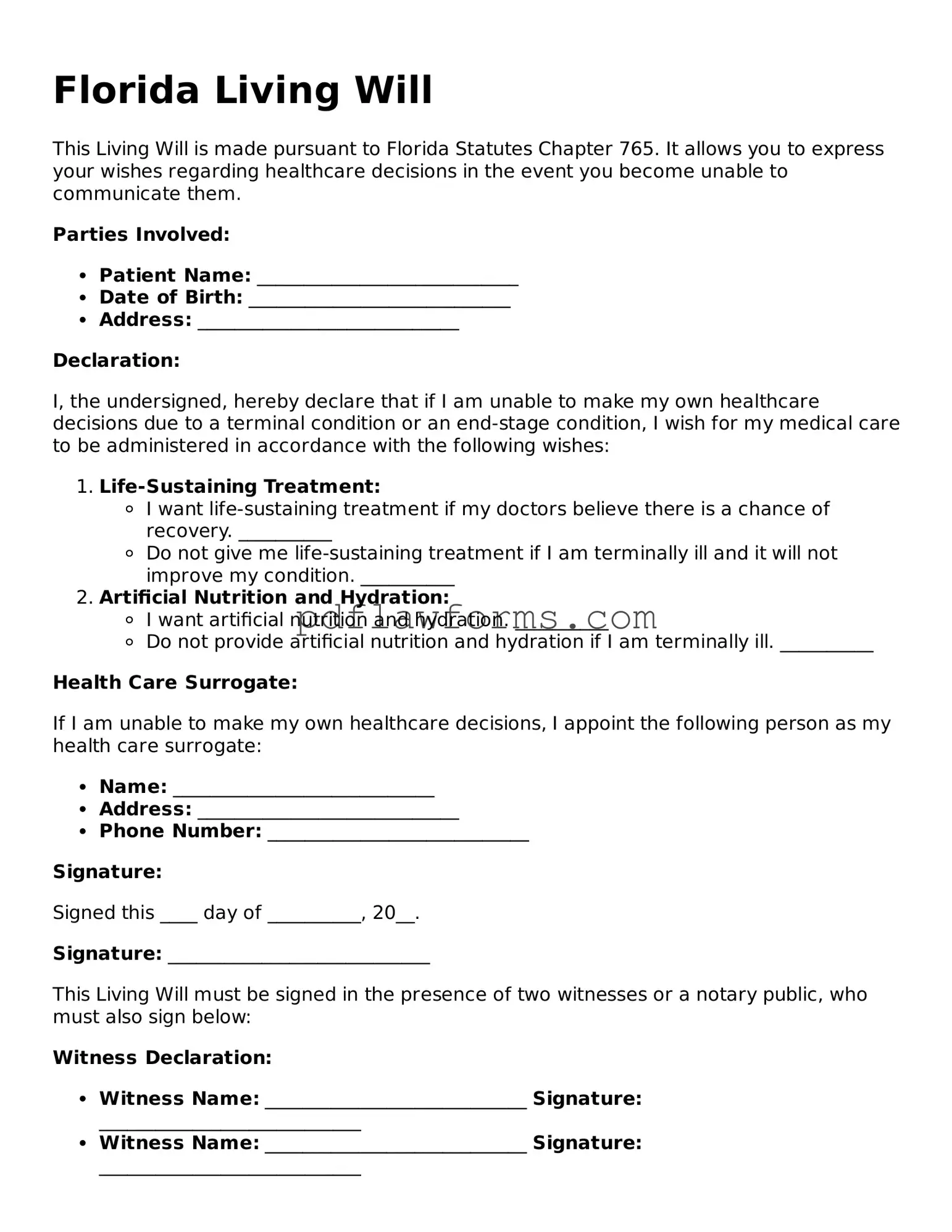Filling out a Florida Living Will form is a crucial step in ensuring your healthcare wishes are honored. However, many individuals make common mistakes that can lead to confusion or even legal challenges. Understanding these pitfalls can help you navigate the process more smoothly.
One frequent mistake is not being specific enough about your wishes. A Living Will should clearly outline your preferences regarding medical treatment in situations where you cannot communicate. Vague language can lead to misinterpretation by healthcare providers or family members, potentially resulting in decisions that do not align with your desires.
Another common error is failing to date the document. A Living Will should always be dated to establish its validity. Without a date, there may be questions about whether the document is current or if it has been superseded by another version. This simple step can prevent complications down the line.
Some individuals neglect to sign the form in the presence of witnesses. Florida law requires that you have two witnesses sign your Living Will for it to be legally binding. If this step is overlooked, the document may not hold up when it is needed most. Witnesses must also meet specific criteria, so it’s essential to ensure they are eligible.
Many people also forget to discuss their wishes with loved ones before finalizing the document. Open conversations about your healthcare preferences can help alleviate confusion and ensure that your family understands your choices. This discussion can also provide an opportunity for them to ask questions and express their thoughts, leading to a more supportive environment.
Additionally, not reviewing the form regularly can lead to outdated information. Life circumstances change, and so may your healthcare preferences. It’s a good practice to revisit your Living Will periodically to ensure it still reflects your current wishes. This proactive approach can save time and heartache in the future.
Lastly, some individuals mistakenly believe that a Living Will is the only document they need. While it is a vital part of advance healthcare planning, it should be accompanied by other documents, such as a Durable Power of Attorney for Healthcare. This ensures that someone you trust can make decisions on your behalf if you are unable to do so.
By being aware of these common mistakes, you can take the necessary steps to create a clear and effective Living Will. This not only protects your wishes but also provides peace of mind for you and your loved ones.

